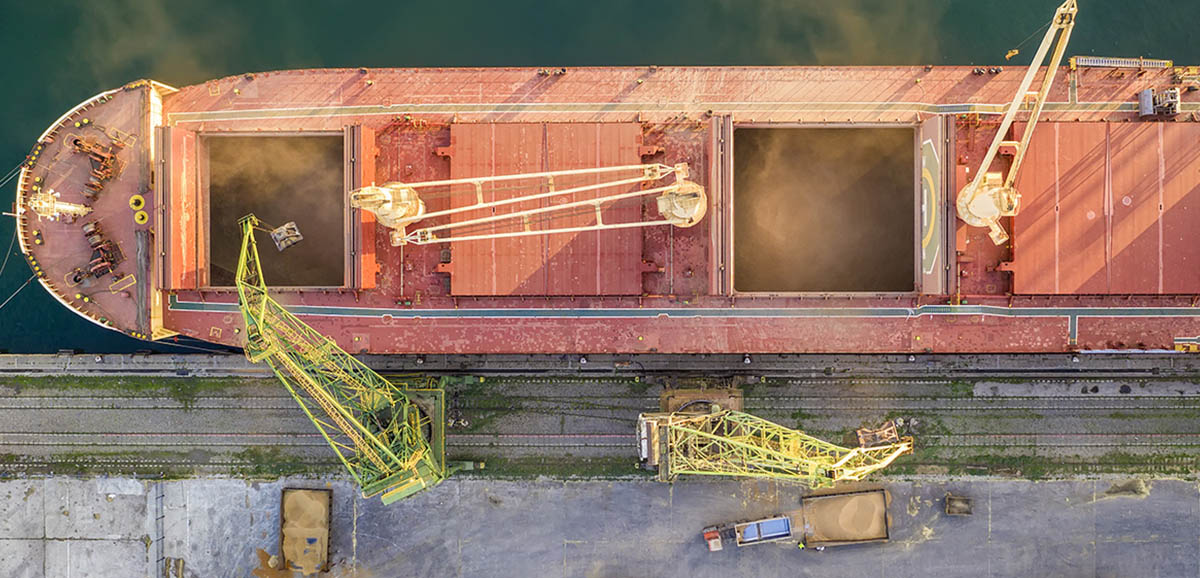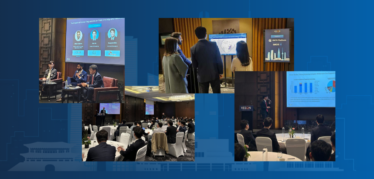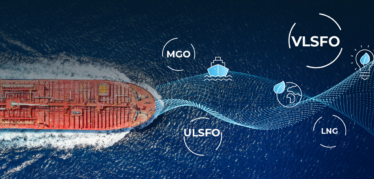90 percent of the world’s trade is transported via sea. And yet, the seaborne supply chain represents a critical gap in visibility and control for most businesses.
From exceedingly complex contracts, to highly specialized processes, changing regulations, and vast distances, the unique characteristics of oceanic trade make it all but impossible for a standard, intermodal logistics solution to fully satisfy marine-specific demands.
In recent years, more than $500 million in venture capital and investment has poured into startups focused on maritime shipping technology. But the vast majority of these startups are focused on extending new capabilities to shipowners and operators, who move and manage the vessels that transport the world’s freight. Tonnage charterers across segments, who control the freight itself, represent a sometimes hidden corner of the marine industry – one that could benefit greatly from specialized solutions capable of extending complete visibility and control over bulk freight before, during, and after its journey across the ocean.
Let’s take a closer look at four things tonnage charterers can accomplish by adopting a specialized logistics platform for their marine modality:
1. Optimize and manage complex nomination processes
The nomination process has critical implications for a tonnage charterer’s ability to meet business and client obligations while minimizing cost. Making the right decisions requires an accurate understanding of key points of data such as vessel performance and contract and spot rates. These variables are always changing, so gaining access to complete and timely data can be easier said than done. With the right platform, however, marine logistics professionals can dynamically compare multiple voyage scenarios, understand all of the time and cost implications of their decisions, and nominate the optimal vessel every time.
2. Accelerate and streamline planning workflows
For a single marine shipment, hundreds of emails are exchanged between multiple parties, including internal team members, brokers, carriers, port operators, clients, and more. For organizations that engage in a high volume and velocity of marine shipments, this can amount to thousands upon thousands of emails at a time. The right platform can facilitate communication and coordination around the marine modality by providing modern workspaces, messaging, robust contract management capabilities, and seamless integration between teams and systems within the organization.
3. Manage the flow of traffic to and from berths
Effective berth scheduling and rotation relies on precise timetables, optimized sequencing of cargoes to the appropriate berths, and a full understanding of every activity’s downstream implications. By providing complete visibility into current and planned activities, and delivering dynamic tools to rapidly compose optimized schedules, the right platform can enable berth operators and other stakeholders that are impacted by berth activities to radically improve the efficiency and effectiveness of their workflows.
Visit this page to learn how IMOS Berth Scheduling can streamline your terminal operations, optimize cargo load and discharge, and provide visibility into critical port activities.
4. Understand and mitigate costs
The marine transport P&L is highly complex, with a myriad of variables that can dramatically affect voyage cost. Without the proper visibility, it is impossible to systematically manage these variables at scale. A supply chain solution that is specialized in the marine modality can provide critical data needed to understand the P&L and its many drivers, effectively associate costs across your product lines, and integrate seamlessly with your internal accounting systems. In addition, the right platform can empower tonnage charterers to transform information into action by using data to substantiate and negotiate claims with their carriers, benchmark their rates against the market, and conduct analyses to assess overall financial performance and spot opportunities for improvement in their marine supply chain.
Improve Your Seaborne Supply Chain with the Veson IMOS Platform (VIP)
As the maritime ecosystem’s leading platform for the management of marine cargo and fleets, the Veson IMOS Platform delivers the decision-ready data and actionable tools marine logistics professionals need to optimize their supply chain and mitigate costs. With a vast user community of more than 21,000+ marine logistics professionals spanning 300 organizations in 60 countries, Veson’s clients include some of the largest tonnage charterers, owner-operators, and commodities traders in the world.



 Giftson Eliyesar
Giftson Eliyesar
 Hongbeom Park
Hongbeom Park
 Oliver Kirkham
Oliver Kirkham